
THANK YOU in Japanese arigatou gozaimasu vs arigatou gozaimashita YouTube
The Japanese word " arigato " (ありがとう) means " thank you " or " thanks ". It is the most basic and one of the most commonly used expressions to say " thank you " in Japanese. Personally, I prefer to think of it and translate it as " thanks " instead of "thank you" since it is the slightly more casual version.

ใช้ Arigato gozaimasu และ Arigato gozaimashita ให้ถูกต้องยังไง? YouTube
In English, they say Thanks, Thank you so much, I appreciate it, etc. Likewise, the ways to thank people in Japanese can be different depending on the situation or people you are thanking.. Meaning of Arigato gozaimasu. The phrase ありがとうございます Arigato gozaimasu literally means it is difficult to exist. あり Ari = exist.
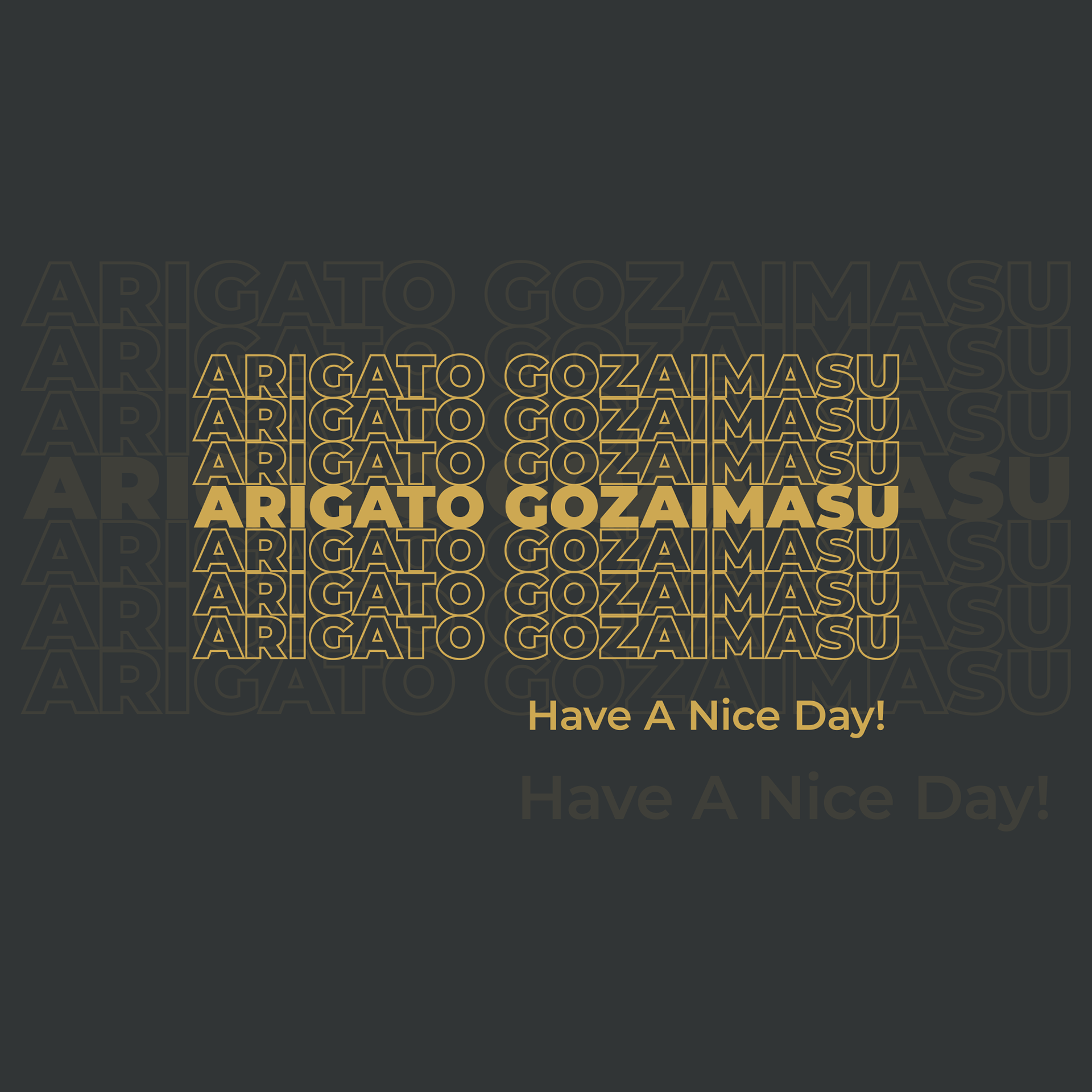
ARIGATO GOZAIMASU on Behance
Updated on September 12, 2017. If you are in Japan, you will probably hear the word arigatou (ありがとう) used on a regular basis. It is an informal way of saying "thank you." But it can also be used in conjunction with other words to say "thank you" in Japanese in more formal settings, such as an office or a shop or anywhere where manners.
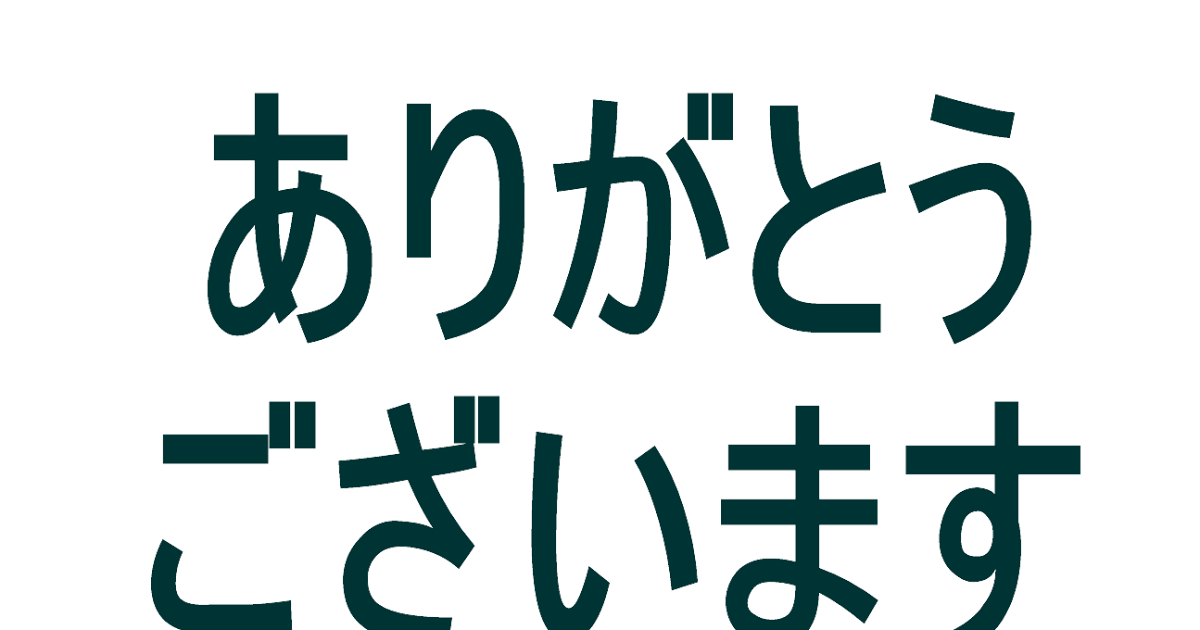
kotodamajapan arigatogozaimasu
Arigato gozaimasu. "Arigato gozaimasu" (ありがとうございます) is a Japanese phrase that translates to "Thank you very much" in English. It's a polite way to show gratitude. The word "arigato" on its own means "thank you," and the addition of "gozaimasu" increases the politeness level of the expression. If you.

Is it Domo arigato or Arigato gozaimasu? Find out in our quick guide to must know Japanese
English translation of arigato gozaimasu - Translations, examples and discussions from LingQ. ×. じん つかう いい かた arigato gozaimasu is a formal way. may want to use arigato gozaimasu to people you meet. Learn Japanese language from content you love!

Arigato gozaimasu. ^^ Kanji Japanese, Basic Japanese Words, Japanese Quotes, Japanese Phrases
Arigato gozaimasu (sometimes transcribed in "Arigatou gozaimasu") is a more polite way of saying "Arigato". This is the most common form of politeness when you talk to someone who has a higher professional or social status than yours. Domo arigato gozaimasu, a formal thank you very much. どうもありがとうございます。 Domo.
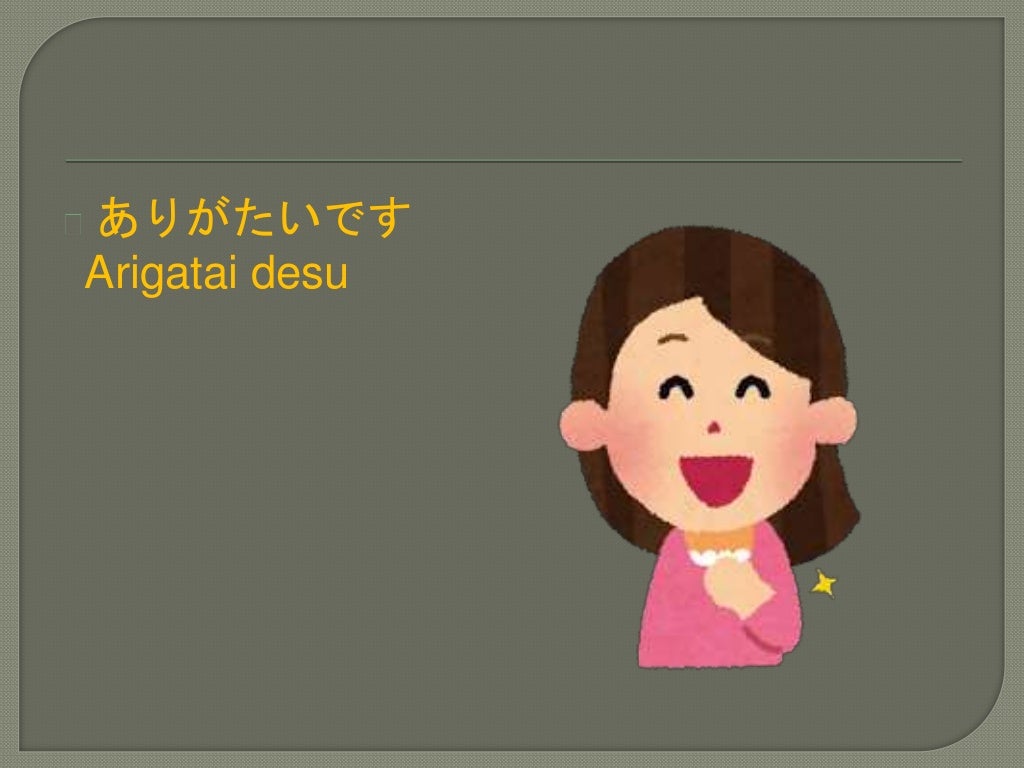
Arigatou gozaimasu
Meaning: Thank you very much. 「どうもありがとうございます」 (Doumo Arigatou gozaimasu) is a more formal and polite way to thank you. It is called Arrigatou Gozaimasu (Arigatou Gozaimasu) because it shows respect for the listener. "Thank you very much" has a sentimental meaning that is similar to "thank you very much.".

"Arigato Gozaimasu! Thank You! ありがとうございます Japanese Slang, Learn Japanese Language, Japan
This means "really" and it's often used to express sincere thanks with ありがとう ( arigatou ), like 本当にありがとうございます ( hontou ni arigatou gozaimasu ). "Really, thank you so much!". You can use 誠に ( makoto ni, "sincerely") in the same way, too, although this makes it more formal.
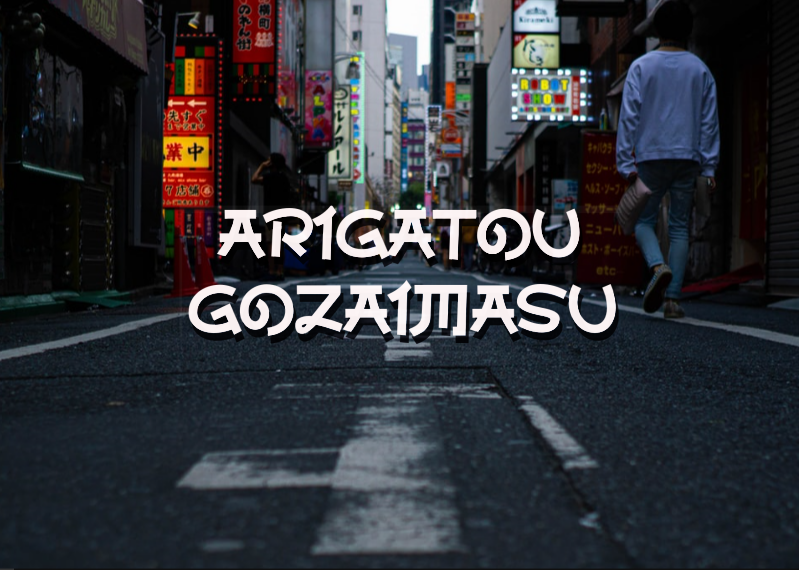
A Arigatou Gozaimasu Font FREE Download & Similar Fonts FontGet
This one is for situations when you want to be even more polite. 3. Hontoni arigato gozaimasu / Thank you so much. If you want to emphasize your appreciation, you can say " hontoni arigato gozaimasu ". If you want to be a little more casual, you can say " hontoni arigato " [honto:ni arigato:]. 4.
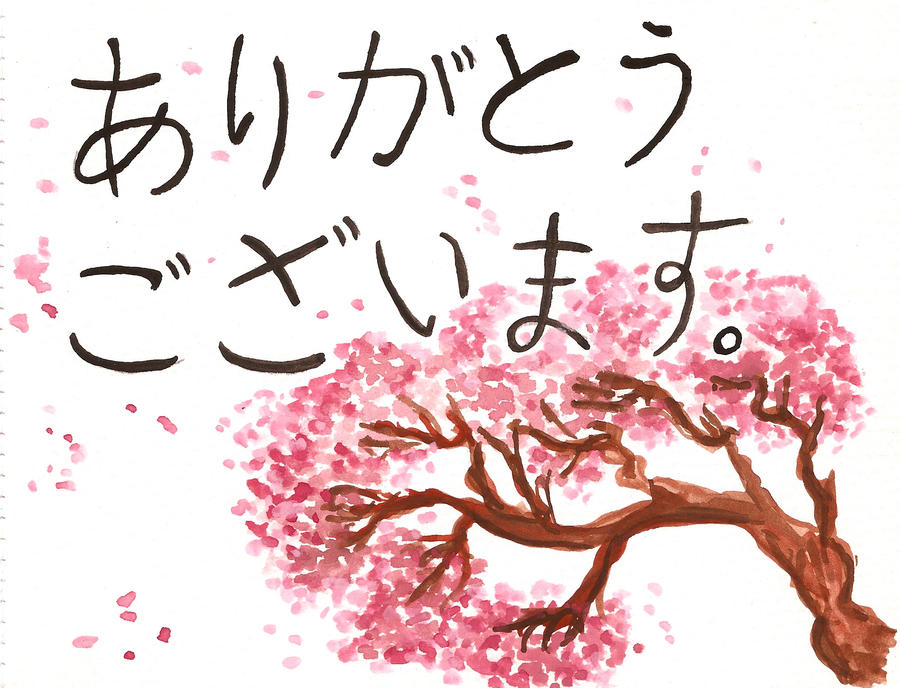
Arigato gozaimasu by emmaprew on DeviantArt
According to Japanese Pod 101, the phrase arigato is the polite form of thank you in Japanese. This word is often used in the formal phrase "domo arigato," the Japanese equivalent to "thank you so much," but can also be used on its own as a casual thanks. People also use the word domo on its own as an even more casual form of thanks.

How To Pronounce Arigatou Gozaimasu YouTube
4 Ways to Say Thank You in Japanese. The word " arigatou " can be used in different ways depending on the formality of the situation. Starting from the most casual form: Doumo (どうも) Arigatou (ありがとう) Arigatou gozaimasu (ありがとうございます) Doumo arigatou gozaimasu (どうもありがとうございます) The term.

Twitter Japanese language learning, Japanese words, Japanese phrases
Knowing how to say 'thank you' in any language is one of the first, and best, things to learn. The gesture is immediately appreciated, especially in Japan, which is an extremely polite society. The Japanese take great pleasure in people from other countries making the effort to communicate with them, so don't feel shy about trying out your Japanese.

Thank You In Japanese Arigato Gozaimashita
Anime has made the Japanese language popular globally. But it differs in style and formality from real-life Japanese. When to use "Arigato" or "Arigato Gozaimasu" depends on the relationship and formality. "Arigato" is for friends and family. In contrast, "Arigato Gozaimasu" is for formal situations or with strangers.

"Arigato Gozaimasu! Thank You! ありがとうございます Japanese Slang, Learn Japanese Language, Japan
Sumimasen, arigatou gozaimasu = A: Here is a souvenir for you. Please take it if you'd like. B: Sorry (for all the trouble you had for me). Thank you. How to say "You're welcome" When I was learning English, the thing I found weird was how English speakers always said "You're welcome", "It's alright", "My pleasure".
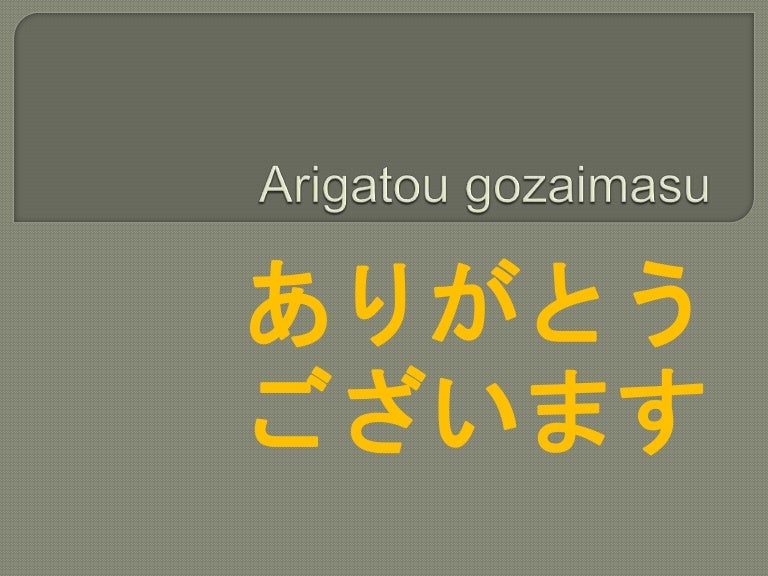
Arigatou gozaimasu
English translation: thank you very much. 00:03 Apr 7, 2003. Japanese to English translations [Non-PRO] Japanese term or phrase:arigato gozaimasu. A pen pal that I e-mail often closed his last letter with this term. Explanation:thank you very much (polite form)
How do you say "arigatou gozaimasu okaasan for the goodies you gave us! hiragana and romanji
本当にありがとう. (hontou ni arigatou) mean "Thank you very much.". The phrase どうも (doumo) can be used on its own, or combined with ありがとう to show an extra level of thankfulness. Another phrase you can put before ありがとう is 本当に (hontou ni) which means truly or really. However, 本当に cannot be used on.
